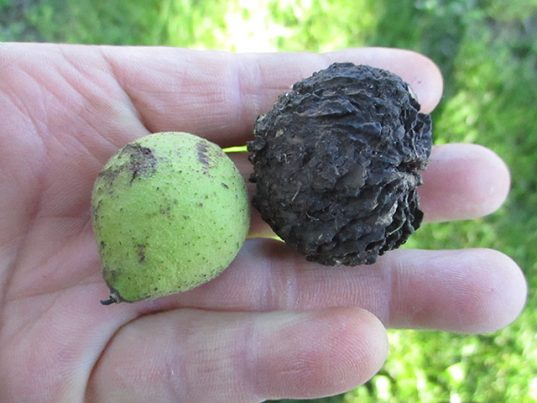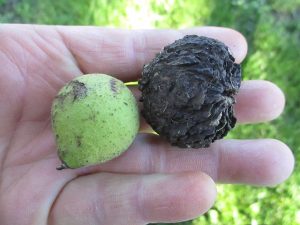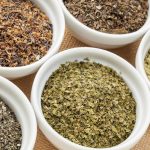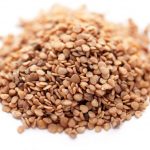
Black Walnuts – sources, health benefits, nutrients, uses and constituents at NaturalPedia.com
Friday, July 21, 2017 by Earl Garcia
http://www.naturalnewsherbs.com/2017-07-21-black-walnuts-sources-health-benefits-nutrients-uses-and-constituents-at-naturalpedia-com.html

Black walnuts are essentially the same regular walnuts that people enjoy, except for its black color and higher protein and fatty acid content. The tree nuts are native to the eastern United States and certain parts of Southern Canada. According to an article posted on the Natural Alternative Remedy website, ancient Romans called the superfood “imperial nut” due to its many medicinal benefits. Likewise, indigenous Americans and many Russian hospitals have used the tree nut for centuries for similar reasons.
List of known nutrients
Black walnuts have long been touted for their high nutrient content. An entry on SELF Nutrition Data website lists the essential vitamins and minerals found in black walnuts, which include:
- Betaine
- Calcium
- Choline
- Copper
- Folate
- Iron
- Magnesium
- Manganese
- Niacin
- Pantothenic Acid
- Phosphorus
- Phytosterols
- Potassium
- Riboflavin
- Selenium
- Sodium
- Thiamin
- Total Omega-3 Fatty Acids
- Total Omega-6 Fatty Acids
- Vitamin A
- Vitamin B12
- Vitamin B6
- Vitamin C
- Vitamin E
- Vitamin K
- Zinc
Medicinal uses for black walnuts
Black walnuts are notably high in omega-3 fatty acids and other beneficial compounds that bolster heart health. The tree nuts are especially helpful in eliminating bad cholesterol from the body. Black walnuts are also found to lower blood pressure levels and reduce the odds of developing cardiovascular conditions such as heart attack, stroke, and coronary heart disease.
Black walnuts are also valued for their potential in cancer prevention. The superfood contains an organic compound called juglone, which, in combination with many other polyphenolic compounds and fatty acids, promote anti-tumor and anti-carcinogenic activity within the body. As a result, this slows down the growth and inhibits the development of various types of cancer.
In addition, black walnuts are an excellent source of antioxidants that combat the harmful effects off free radicals and fortify the immune system against a host of infections. Likewise, the tree nuts contain antiviral and anti-parasitic properties that further protect the body against diseases. Black walnuts are also touted for their anti-inflammatory effects that help alleviate sore throats and other respiratory conditions. Aside from this, the superfood’s anti-fungal effects help stave off a plethora of fungal infections such as candida, Athlete’s foot, ringworm, and jock itch.
Moreover, the anti-inflammatory properties of black walnuts are known to relieve upset stomach and swollen intestinal walls. The tree nuts are touted to maintain normal digestive process and regular excretion too. Additionally, black walnuts may help alleviate other digestive issues such as constipation and diarrhea. Furthermore, black walnuts are high effective in promoting skin health. The tree nuts contain an ample supply of antioxidants, minerals and beneficial fatty acids that not only improve the skin’s condition but also wards off various related disorders such as warts and cold sores.
Body systems supported by black walnuts
The high omega-3 content in black walnuts is especially beneficial to the cardiovascular system. Likewise, black walnuts help maintain healthy immune, respiratory, and digestive systems.
Ways to use black walnuts
Just like regular walnuts, black walnuts are used as a staple in backed goods such as cakes and pastries. An article in Epicurious.com features an interesting cake recipe using black walnuts. Likewise, online recipe curator AllRecipes.com includes instructions on making black walnut cookies.
Where to learn more
- Iodine in black walnut tincture may be effective against radiation exposure
- 5 Herbs that Fight Yeast in the Body
- Nuts And The Growth Hormone – Everything You Need To Know
- 8 Foods that Fight Parasites Naturally
- Why walnuts are the ultimate brain food
Summary
Black walnuts help prevent cancer, cardiovascular disease, and respiratory conditions.
Black walnuts ward off bacterial and fungal infections, skin diseases, and digestive issues.
Black walnuts Benefits the cardiovascular, immune, respiratory, and digestive systems.
Sources include:
Tagged Under: Tags: Black walnuts






